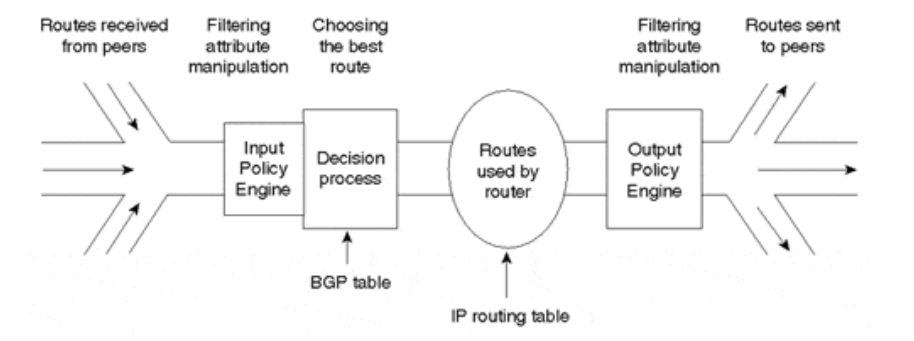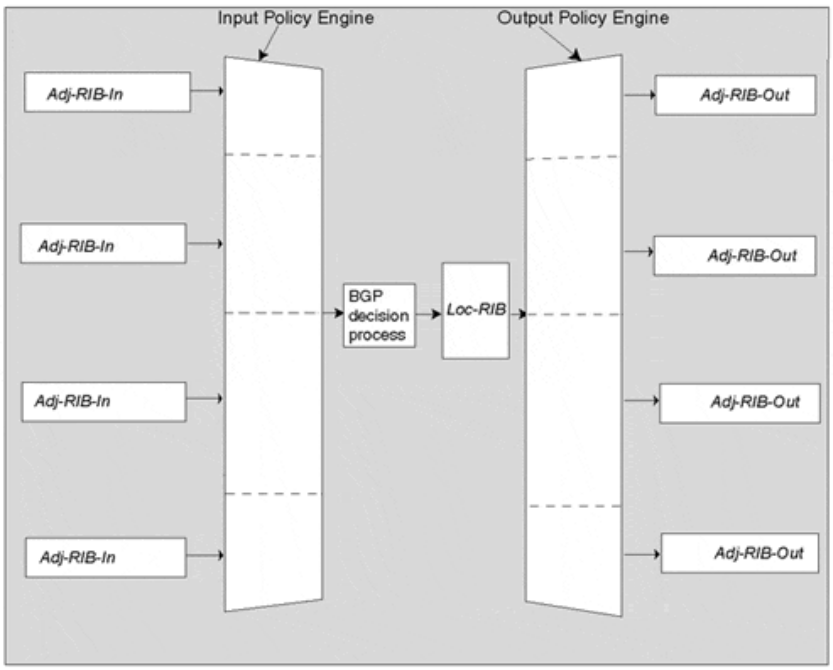BGP is a fairly simple protocol, which is why it’s so flexible. When the BGP session is established, routes are exchanged between BGP peers via UPDATE messages. BGP routers receive the UPDATE messages, run some policies or filters over the updates, and then pass the routes to other BGP peers. An implementation is required to keep all BGP updates in a BGP routing table separate from the IP routing table. In case multiple routes to the same destination exist, BGP does not flood its peers with all those routes; rather, it picks the best route and sends it.
BGP Routes: Advertisement and Storage
Routes are advertised between a pair of BGP speakers in UPDATE messages: the destination is the system whose IP addresses are reported in the Network Layer Reachability Information (NLRI) field, and the path is the information reported in the path attributes field of the same UPDATE message. Routes are stored in the Routing Information Bases (RIBs): namely, the Adj-RIBs-In, Loc-RIB, and the Adj-RIBs-Out. Routes that will be advertised to other BGP speakers must be present in the Adj-RIB-Out; Routes that will be used by the local BGP speaker must be present in the Loc-RIB, and routes that are received from other BGP speakers are present in the Adj-RIBs-In.
The BGP Routing Information Bases
The BGP routing table consists of three distinct parts: Adj-Routing Information Base (RIB)-In, Loc-RIB, and Adj-RIB-Out.
An Adj-RIB-In is logically associated with each individual peer of a BGP speaker. It stores routing information that has been learned from the peer via inbound UPDATE messages. The contents of all the Adj-RIBs-In are available as input to the BGP decision process after being manipulated or perhaps even filtered by the Input Policy Engine associated with the peer.
The Loc-RIB contains only the preferred routes that have been selected as the best path to each available destination. The Loc-RIB is the result of the BGP decision process after incoming local policies have been applied by the Input Policy Engines.
An Adj-RIB-Out is logically associated with each individual peer of a BGP speaker. It stores routing information that the BGP speaker has selected for advertisement to the peer. The Adj- RIB-Out contains information from the Loc-RIB to be advertised to the peer after the associated Output Policy Engine has been applied.

